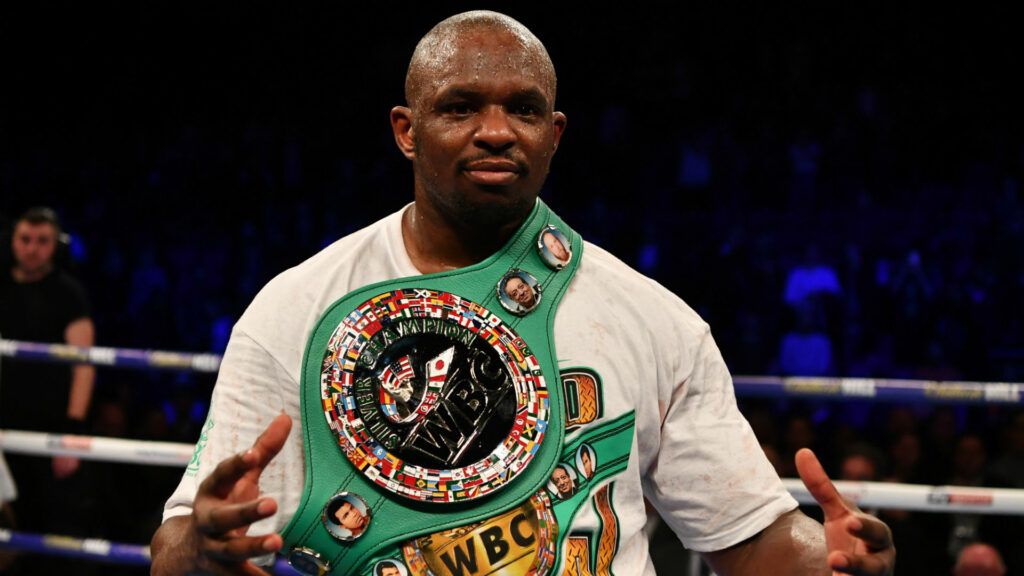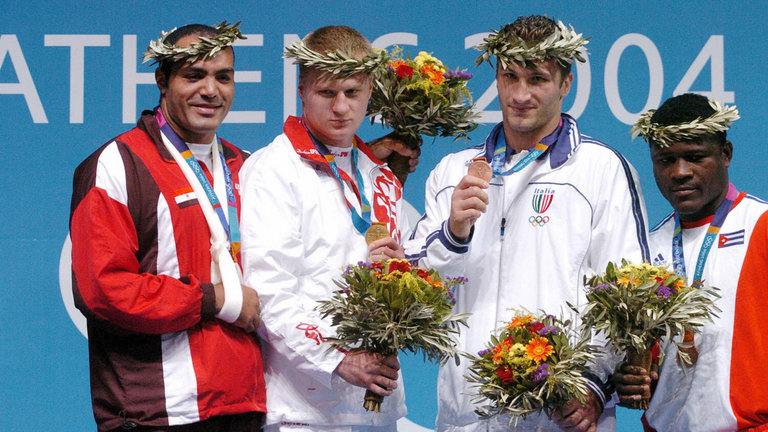Matchroom Boxing’s summer ‘Fight Camp’ series draws to a close with a controversial Pay-Per-View heavyweight clash between Brixton’s Dillian Whyte and Russia’s Alexander Povetkin on Saturday night.
Some fans have expressed discontent at the prospect of having to pay out £19.95 for a five-bout bill in the midst of a global pandemic that has left many in a financially parlous state.
Furthermore, the fact that Whyte – who has never challenged for a world title, let alone won one – has now headlined four pay-per-view events in his last five fights is seen by some as an indictment of the extent to which British boxing has now placed itself behind a restrictive paywall.
The counter-argument, of course, is that fights such as Whyte-Povetkin would not be possible without PPV, particularly when there are no live gate receipts available at present to supplement income from television.
Whichever side of the debate you are on, it’s pretty inarguable that this is a heavyweight showdown that is at best intriguing, rather than pulse quickening, and at worst uninspiring and somewhat ethically dubious, given both combatants’ past issues with PED tests. It is also a fight whose greatest significance relates not to the outcome itself, but how this outcome may affect the complex geo-politics of the heavyweight landscape in 2021.

The victor, according to the WBC, will be mandated to face the winner of Tyson Fury’s third tussle with Deontay Wilder, potentially pushing a mooted undisputed title showdown with Anthony Joshua (or Kubrat Pulev, of course), even further into the long grass.
However, as much as the boxing world is thirsting for a Fury vs Joshua showdown, should the 32-year-old Whyte prevail it would be churlish in the extreme to resent his shot at the WBC title for which he has been the leading contender since November 2017.
The final hurdle blocking the Bodysnatcher’s Homeric quest for the green and gold strap is the 40-year-old Povetkin, a former WBA title holder who has in the past come up short in bids for unified titles against Wladimir Klitschko in 2013 and Joshua in 2018.
Whyte is currently rated a 1/4 favourite to prevail with Betfred , while Povetkin is a 16-5 outsider. In some respects such odds are surprising. After all, those looking for pedigree and conventional accomplishments for a clue to the victor on Saturday night need look no further than the Russian’s CV.
Povetkin enjoyed one of the most accomplished amateur careers of any heavyweight of recent times, twice winning the European Championships, as well as securing World and Olympic gold medals in a glittering spell in the unpaid ranks. Furthermore, as a pro he is among the most seasoned operators around, and has lost only to Klitschko and Joshua, winning five out of seven ‘world’ title contests while amassing a 35-2-1 (24 KOs) career ledger thus far.

In contrast, Whyte’s route to close to the summit of professional boxing has been unconventional to say the least. A former professional kickboxer and MMA fighter, the Jamaican-born Whyte didn’t box as an amateur until he was 20, and amassed just six unpaid contests in all, although he did – in his debut no less – best Joshua.
After turning over in 2011, Whyte won 16 straight before being stopped by Joshua in a rousing but fairly one-sided contest in December 2015. Since then he was won eleven in a row, with Dereck Chisora (twice), Joseph Parker and Oscar Rivas the most notable scalps on his 27-1 (18 KOs) record.
Whyte has acquired a reputation for ‘fighting anyone’ which does not bear much scrutiny given the fact he turned down the chance to fight Kubrat Pulev in an IBF eliminator in Bulgaria and priced himself out of a Joshua rematch prior to his rival’s shock defeat to Andy Rui Jr.
Nonetheless, the Brixton man is on a good run of form against decent opposition and has improved markedly in the last few years. If he was facing a peak or chemically enhanced Povetkin then Whyte might be in trouble. The Russian has very solid fundamentals, a big punch and a decent chin. He also knows plenty of roughhouse tricks and tactics and has a left hook to rival Whyte’s.
Although the Russian has insisted “the only thing that has changed compared to 20 years ago is that I now train more responsibly”, he is undoubtedly shop-worn. In his last fight he was fortunate to escape with a draw against Michael Hunter. The cautious America failed to exert enough pressure on the Russian when he appeared ripe for the taking – it’s not an error one would expect a motivated Whyte to replicate.
Yes, Whyte remains rough around the edges, but his conditioning and stamina have improved and his resolve has been hardened by tough battles against the likes of Chisora and Parker.

Although he laboured last time out against the undemanding Mariusz Wach, and looked far too fleshy at 271lbs, one would expect Whyte to be far more focused on this occasion.
One unknown factor is how Whyte’s split with the calm and assured Mark Tibbs may affect him. The new man in his corner, Xavier Miller, is nowhere near as experienced, although Dave Coldwell has sensibly been added to Whyte’s corner team.
Despite the change in training team and Povetkin’s pedigree it is hard to look past a Whyte win. I get the feeling Povetkin will discomfort Whyte at times, and may even bank some early rounds, but I expect Whyte to land enough jolting left hooks to discourage the Russian by the time the fight reaches its final quarter.
Sometime after round nine, look for Whyte to stop Povetkin, who will probably end the contest on his feet but exhausted and unable to adequately defend himself.